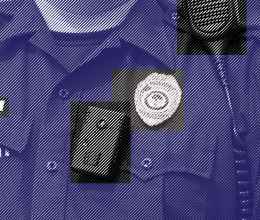What is State Issue 1?
Also known as Marsy’s Law or the Ohio Crime Victim Bill of Rights (OCVBR), it would amend Article I, Section 10a of the Ohio Constitution to establish enforceable victim rights within the Ohio Constitution. Voters will decide this issue at the November 7, 2017 election.
Why is the ACLU opposed to State Issue 1?
There are several problems with this initiative, but the most important aspect is that it will essentially turn our system of due process on its head. The U.S. criminal justice system operates on a principle that every person is innocent until proven guilty, and that anyone accused of a crime must have a fair trial. To prove a person is guilty, the evidence must be beyond a reasonable doubt, which is important because if we aim to take someone’s liberty away, we must be sure they are guilty.
State Issue 1 would prevent people accused of crimes from obtaining evidence that may prove them innocent if that evidence is from or about victims, making it incredibly difficult to mount a true defense. Again, we must be completely sure of a person’s guilt before convicting them, and denying access to important evidence would make it nearly impossible to do so.
The initiative would also allow victims to intervene at any part of the criminal proceedings and be heard. This could also impact a defendant’s right to due process, and if a victim is repeatedly interjecting, they could also slow proceedings and endanger the accused’s right to a speedy trial. Some victims might also intervene in ways that could jeopardize the strategy of prosecutors, putting at risk the state’s ability to properly conduct the trial.
What provisions does the ACLU specifically oppose?
The ACLU of Ohio opposes three specific provisions of the initiative. Subsection (3) takes away judge’s discretion as to when to allow the victim to address the accused and provide testimony, raising serious due process and fair trial concerns. Subsection (6) severely abridges discovery rights, which could be a violation of the U.S. Constitution. Finally, Subsection (9) affords victims the absolute right to meet with the prosecution, which could compromise their integrity and raise questions about potentially exonerating evidence that could constitute be a violation of the U.S. Constitution.
Don’t victims already have the opportunity to speak during criminal proceedings?
Yes, but subject to the discretion of the judge. State Issue 1 would take away the ability for the judge to decide, meaning a victim could speak even if the judge had concerns it could endanger the accused’s right to due process and a fair trial.
If victims speak out at a trial, are they entitled to an attorney to represent them?
This is not clear. While State Issue 1 allows victims to intervene in criminal proceedings and speak, it does not expressly grant them a right to an attorney. A victim who has financial means would certainly be able to utilize an attorney; however, a victim who is low-income might not be able to afford an attorney. Even if one agrees with State issue 1, this seems to create two tiers of justice where those who can afford counsel to guide them through proceedings have an advantage over those who do not.
Does Marsy’s Law conflict with the U.S. Constitution?
Although it is not clear, allowing the victim to withhold evidence that may lead to an exoneration may be a violation of the accused’s 14th Amendment due process rights. In Brady v. Maryland, the Supreme Court held that withheld evidence that may have led to a finding of not guilty for the accused constituted a due process violation under the 14th Amendment. The proposed law also affords the victim the absolute right to meet with the prosecutor, potentially creating serious ethical problems regarding the admissibility of evidence and the integrity of the prosecutor, further damaging the accused’s due process rights.
Could this initiative lead to more wrongful convictions?
Yes. The very foundation of our criminal justice system is that a person must be innocent until proven guilty, and there are various protections put in place to ensure that we only take away the liberty of those who have been found guilty beyond a reasonable doubt.
By undermining these protections, we may allow individuals to be wrongfully convicted. This is already a problem in Ohio, with nine exonerations of death row prisoners in recent years, and many more people wrongfully convicted of far less serious crimes.
What is the cost to implement State Issue 1?
There has been no clear answer on what cost the initiative will have to taxpayers, though it is easy to imagine there will be costs associated with it. If court cases are longer, individuals may be held pretrial in jail, and the direct costs to courts will be higher as well.
More importantly, State Issue 1 may lead to higher rates of incarceration, longer sentences, and steeper fines and fees. If the important due process balance is undermined in our justice system, it only stands to reason that more people will be wrongly convicted or sentenced harsher. With an already overburdened state prison and jail system, this moves Ohio in the wrong direction. Even worse, it does little to protect public safety because it will simply plunge individuals even deeper into the criminal justice system.
Does the ACLU oppose every aspect of State Issue 1?
No. For instance, there are aspects of State issue 1 that require the state to alert victims about criminal proceedings or when a person is paroled from prison that the ACLU does not oppose outright. However, these provisions are overshadowed by the constitutional problems posed by other aspects of State Issue 1 that represent a direct threat to our legal system.
What more can be done to honor the rights of the victim?
The ACLU supports victim’s rights, but not at the cost of fundamentals in our justice system. State Issue 1 does little to address the lack of funding for restitution and support that many victims need.
Increasingly, victim’s rights advocates nationwide have promoted notions of restorative justice, rather than simply punishment. Many victims simply want to be heard and to get a sense of closure. Simply punishing the perpetrator may not deliver these ideals, and State Issue 1 fails to fully address those needs.
Who else has opposed State Issue 1?
The Ohio Prosecuting Attorney Association, the Ohio State Bar Association, and Office of the Ohio Public Defender have all raised concerns about the initiative and its impact on the criminal justice system.
Who is behind State Issue 1?
Marsy’s Law originally passed in California in 2008, and the group backing the law has successfully enacted similar laws in Illinois, North Dakota, South Dakota, and Montana. Efforts to pass similar laws are currently under way in Kentucky, Georgia, Nevada, Maine, Ohio, and Oklahoma, among other states.
These campaigns are primarily funded by Henry T. Nicholas. Mr. Nicholas is well-known as the co-founder of Broadcom Corp., where he amassed considerable wealth when the company went public.








